Ich habs gewagt mit Sinnen
Und trag des noch kein Reu,
Mag ich nit dran gewinnen,
Noch muß man spüren Treu;
Darmit ich mein
Nit eim allein,
Wenn man es wollt erkennen:
Dem Land zu gut,
Wiewohl man tut
Ein Pfaffenfeind mich nennen.
Da laß ich jeden liegen
Und reden was er will;
Hätt Wahrheit ich geschwiegen,
Mir wären hulder viel.
Nun hab ichs gsagt,
Bin drumb verjagt,
Das klag ich allen Frummen,
Wiewohl noch ich
Nit weiter fleich,
Vielleicht werd wiederkummen.
Umb Gnad will ich nit bitten,
Dieweil ich bin ohn Schuld;
Ich hätt das Recht gelitten,
So hindert Ungeduld,
Daß man mich nit
Nach altem Sitt
Zu Ghör hat kummen lassen;
Vielleicht wills Gott,
Und zwingt sie Not,
Zu handlen diesermaßen.
Nun ist oft diesergleichen
Geschehen auch hie vor,
Daß einer von den Reichen
Ein gutes Spiel verlor;
Oft großer Flamm
Von Fünklin kam,
Wer weiß, ob ichs werd rächen;
Staht schon im Lauf,
So setz ich drauf:
Muß gahn oder brechen.
Darneben mich zu trösten
Mit gutem Gwissen hab,
Daß keiner von den Bösten
Mir Ehr mag brechen ab,
Noch sagen, daß
Uff einig Maß
Ich anders sei gegangen
Dann Ehren nach;
Hab diese Sach
In gutem angefangen.
Will nun ihr selbs nit raten
Dies frumme Nation,
Ihrs Schadens sich ergatten,
Als ich vermahnet han:
So ist mir leid,
Hiemit ich scheid,
Will mengen baß die Karten;
Bin unverzagt,
Ich habs gewagt
Und will des Ends erwarten.
Ob dann mir nach tut denken
Der Kurtisanen List,
Ein Herz laßt sich nit kränken,
Das rechter Meinung ist.
Ich weiß noch viel,
Wölln auch ins Spiel,
Und solltens drüber sterben:
Auf, Landsknecht gut
Und Reuters Mut,
Laßt Hutten nit verderben!
Und trag des noch kein Reu,
Mag ich nit dran gewinnen,
Noch muß man spüren Treu;
Darmit ich mein
Nit eim allein,
Wenn man es wollt erkennen:
Dem Land zu gut,
Wiewohl man tut
Ein Pfaffenfeind mich nennen.
Da laß ich jeden liegen
Und reden was er will;
Hätt Wahrheit ich geschwiegen,
Mir wären hulder viel.
Nun hab ichs gsagt,
Bin drumb verjagt,
Das klag ich allen Frummen,
Wiewohl noch ich
Nit weiter fleich,
Vielleicht werd wiederkummen.
Umb Gnad will ich nit bitten,
Dieweil ich bin ohn Schuld;
Ich hätt das Recht gelitten,
So hindert Ungeduld,
Daß man mich nit
Nach altem Sitt
Zu Ghör hat kummen lassen;
Vielleicht wills Gott,
Und zwingt sie Not,
Zu handlen diesermaßen.
Nun ist oft diesergleichen
Geschehen auch hie vor,
Daß einer von den Reichen
Ein gutes Spiel verlor;
Oft großer Flamm
Von Fünklin kam,
Wer weiß, ob ichs werd rächen;
Staht schon im Lauf,
So setz ich drauf:
Muß gahn oder brechen.
Darneben mich zu trösten
Mit gutem Gwissen hab,
Daß keiner von den Bösten
Mir Ehr mag brechen ab,
Noch sagen, daß
Uff einig Maß
Ich anders sei gegangen
Dann Ehren nach;
Hab diese Sach
In gutem angefangen.
Will nun ihr selbs nit raten
Dies frumme Nation,
Ihrs Schadens sich ergatten,
Als ich vermahnet han:
So ist mir leid,
Hiemit ich scheid,
Will mengen baß die Karten;
Bin unverzagt,
Ich habs gewagt
Und will des Ends erwarten.
Ob dann mir nach tut denken
Der Kurtisanen List,
Ein Herz laßt sich nit kränken,
Das rechter Meinung ist.
Ich weiß noch viel,
Wölln auch ins Spiel,
Und solltens drüber sterben:
Auf, Landsknecht gut
Und Reuters Mut,
Laßt Hutten nit verderben!
Contributed by Bernart Bartleby - 2014/6/11 - 14:08
Language: English
Traduzione inglese dal sito della Christian Classics Ethereal library
ULRICH VON HUTTEN'S SONG.
I've ventured it of purpose free,
Nor yet my deed I rue;
I may not win, but men will see
My heart and life were true.
'Tis not my own I seek alone,
This they must know at least;
'Tis good of all, though me they call
A foe to Church and priest.
But I will let them spread their lies
And chatter as they will;
If I would but the truth disguise,
And tongue and pen keep still,
Flatterers enow were mine, I trow,
Now I'm a banished man;
Yet think not I afar to fly,
Time yet may change the ban.
But nought of pardon will I pray,
For nought of guilt I own;
I would have bowed to Justice' sway,
Here Passion reigns alone,
Nor grants my cause by ancient laws
A hearing fair and free;--
But God ordains and need constrains
That thus they deal with me.
Yet oft ere now it hath been seen
When rich men felt secure,
They yet have lost the game, I ween,
They deemed their own full sure.
A mighty flame from sparks oft came;
Who knows, my turn may come?
I've played my stake, the risk I'll take,
And here abide my doom.
And 'midst it all my solace is
A conscience void of spot;
My direst foes must grant me this,
My honour hath no blot.
For there is nought I've said or sought,
But it doth well appear,
That all was done before the sun
In honour bright and clear.
Now if my nation's gallant youth
Will not my warning take,
And bravely stand for Right and Truth,
It grieves me for her sake,
I must depart, with heavy heart;
Yet deem not all is o'er,
Come foul or fair I'll not despair,
But mix the cards once more.
No courtiers' crafts shall me affright,
Though deep the game they've played;
An honest heart that loves the Right
Can never be dismayed.
Full many a name will join the game,
Nor life nor wealth will cherish;
Up! burghers grave, and horsemen brave,
And let not Hutten perish!
I've ventured it of purpose free,
Nor yet my deed I rue;
I may not win, but men will see
My heart and life were true.
'Tis not my own I seek alone,
This they must know at least;
'Tis good of all, though me they call
A foe to Church and priest.
But I will let them spread their lies
And chatter as they will;
If I would but the truth disguise,
And tongue and pen keep still,
Flatterers enow were mine, I trow,
Now I'm a banished man;
Yet think not I afar to fly,
Time yet may change the ban.
But nought of pardon will I pray,
For nought of guilt I own;
I would have bowed to Justice' sway,
Here Passion reigns alone,
Nor grants my cause by ancient laws
A hearing fair and free;--
But God ordains and need constrains
That thus they deal with me.
Yet oft ere now it hath been seen
When rich men felt secure,
They yet have lost the game, I ween,
They deemed their own full sure.
A mighty flame from sparks oft came;
Who knows, my turn may come?
I've played my stake, the risk I'll take,
And here abide my doom.
And 'midst it all my solace is
A conscience void of spot;
My direst foes must grant me this,
My honour hath no blot.
For there is nought I've said or sought,
But it doth well appear,
That all was done before the sun
In honour bright and clear.
Now if my nation's gallant youth
Will not my warning take,
And bravely stand for Right and Truth,
It grieves me for her sake,
I must depart, with heavy heart;
Yet deem not all is o'er,
Come foul or fair I'll not despair,
But mix the cards once more.
No courtiers' crafts shall me affright,
Though deep the game they've played;
An honest heart that loves the Right
Can never be dismayed.
Full many a name will join the game,
Nor life nor wealth will cherish;
Up! burghers grave, and horsemen brave,
And let not Hutten perish!
Contributed by Bernart Bartleby - 2014/6/11 - 14:15
×
![]()
Note for non-Italian users: Sorry, though the interface of this website is translated into English, most commentaries and biographies are in Italian and/or in other languages like French, German, Spanish, Russian etc.

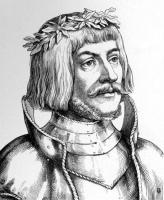

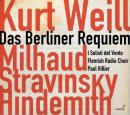
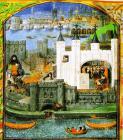
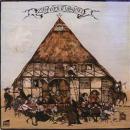


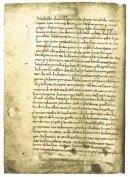
Versi di Ulrich von Hutten (1488-1523), umanista, cavaliere e teologo tedesco, che combattè in armi per la Riforma contro i grandi feudatari e la Chiesa cattolica. Un “radicale” che venne schienato anche da Erasmo da Rotterdam e da Lutero e che, sconfitto, morì malato di sifilide e in miseria nel 1523, esule sull’isola di Ufenau, sul lago di Zurigo.
Questa “canzone” – non so se tratta dal “Gesprächbüchlein” (i Dialoghi) scritti da Ulrichs von Hutten nel 1520 – compare ne “Il Gallo Rosso”, l’unico disco di un musicista, etnomusicologo e sociologo tedesco pressochè dimenticato, Uwe Hermann, prematuramente scomparso nel 1980 in uno scontro automobilistico con alcuni soldati americani ubriachi. “Il Gallo Rosso”, del 1979, è stato ripubblicato di recente, nel 2011, dalla Nota, casa editrice e discografica di Udine.
Originariamente pubblicata nel 1979, la raccolta di canti politici, di protesta e popolari raccolti e reinterpretati da Uwe Hermann, costituisce un originale percorso - che va dagli inizi del 1500 agli anni Trenta del Novecento - tutto teso alla riscoperta di testi e temi antagonisti che hanno segnato momenti storici di ribellione e denuncia: dalle lotte contadine del Cinquecento fino ai testi di Brecht nella Germania nazista.
Uwe Hermann (1942-1980) sociologo con interessi verso la linguistica e i problemi del lavoro negli anni Settanta collaborava in Svizzera con Leonardo Zanier e proprio grazie al poeta-emigrante carnico è approdato in Friuli.
“Il Gallo Rosso”, titolo delle registrazioni di Uwe Hermann, non è altro che la metafora del fuoco sul tetto dei castelli, obiettivo fisico e figurato delle ribellioni sociali che hanno attraversato in modi diversi la nostra storia. Si tratta di una raccolta che per certi versi fotografa il clima politico e culturale alla fine degli anni Settanta e che rivede oggi la luce dopo oltre trent’anni e aspira divenire prova testimoniale di un impegno storico verso tutti i movimenti popolari che nei secoli hanno avuto la forza, la disperazione o il coraggio di ribellarsi.
La riedizione, curata da Carlo Bressan e Valter Colle, presenta oltre che la rimasterizzazione digitale delle registrazioni originali, anche la raccolta integrale di tutti i 23 testi (in tedesco e italiano) che compongono l’opera.
Uomo del Rinascimento, propugnatore della Riforma non solo in senso religioso ma politico, teologo rivoluzionario più che “Riformatore”, Ulrich von Hutten si pose a capo di una rivolta della bassa nobiltà, dei cavalieri, contro i grossi feudatari e i grassi prelati, incendiando e saccheggiando castelli e chiese. Fu fermato da una lega costituita all’occasione dai principi dell'Assia e del Palatinato. Se ne morì in solitudine, annientato dalla sifilide (che però studiò e cercò di combattere con rimedi naturali, registrando puntualmente le sue osservazioni), non senza aver molto scritto, rivendicando le sue scelte e maledicendo i suoi nemici in sarcastiche invettive.